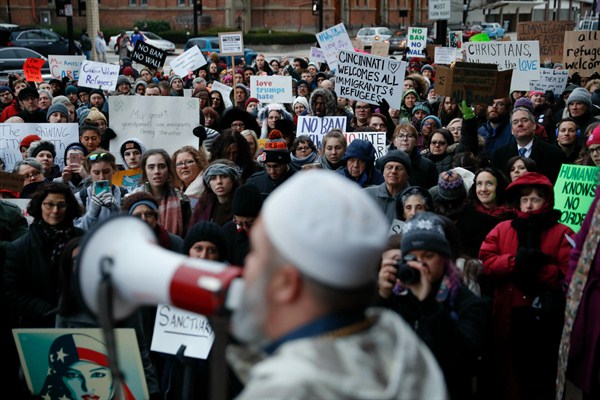No matter whether President Donald Trump’s executive order blocking entry to the United States from seven Muslim-majority countries is called a “temporary suspension” or, as Trump himself labeled it, a “ban,” it has caused furor both inside the United States and abroad. Even putting aside the morality of the policy, its hard-to-understand inclusion of some predominantly Muslim nations but not others, and the bizarre way it was developed and rolled out, it is having a major effect on America’s global security, much of it negative. While the entry ban might be good domestic politics for Trump, it defies the time-tested logic of strategy.
Strategy is about using power resources to promote or advance a nation’s security, often by managing or eradicating threats. Its essence is thinking broadly—understanding multiple connections and second-order effects—while balancing the costs, risks and benefits of an action or policy so that the likely benefits outweigh the expected costs and risks. This is the standard by which the entry ban should be judged.
The likely security benefits of the new policy are negligible. There have been no successful terrorist attacks on the United States by citizens of the countries on the ban list, and administration officials provided no evidence that there was an impending or real threat of terrorists traveling from the seven targeted nations. In today’s world, it would be very easy for terrorist organizations like the self-styled Islamic State or al-Qaida to find someone from a country not on the ban list to send to the United States for an attack, or to simply recruit someone already living in the United States, as has already occurred. Refugees, who were included in the ban, already undergo extensive vetting before being allowed entry into the U.S.

